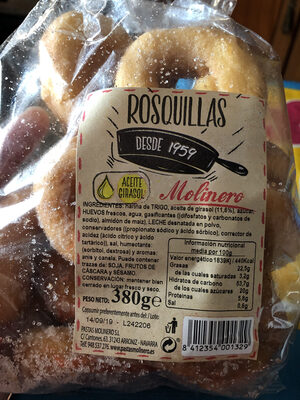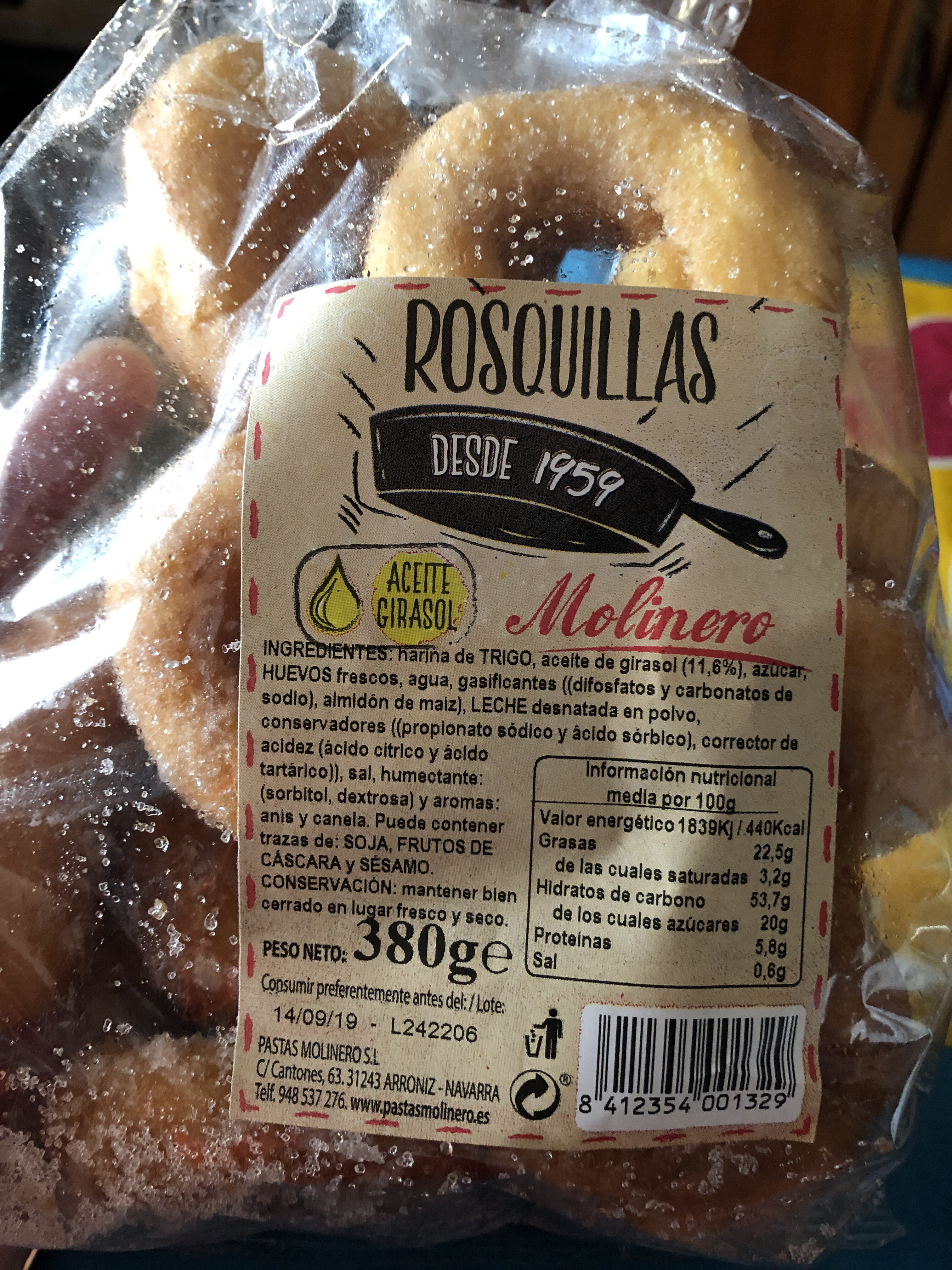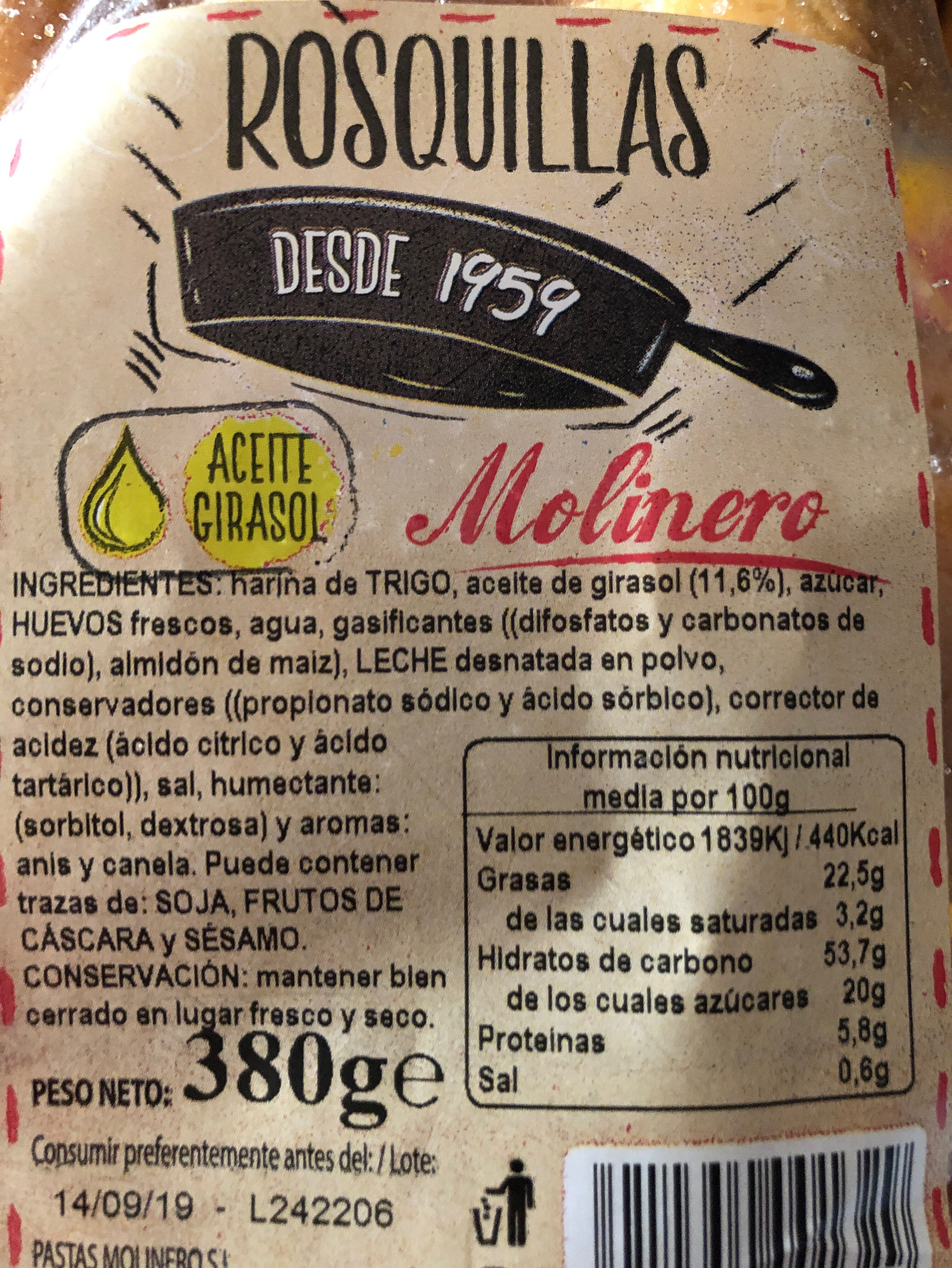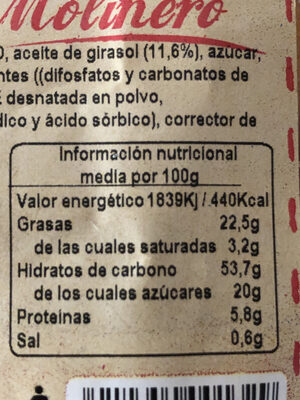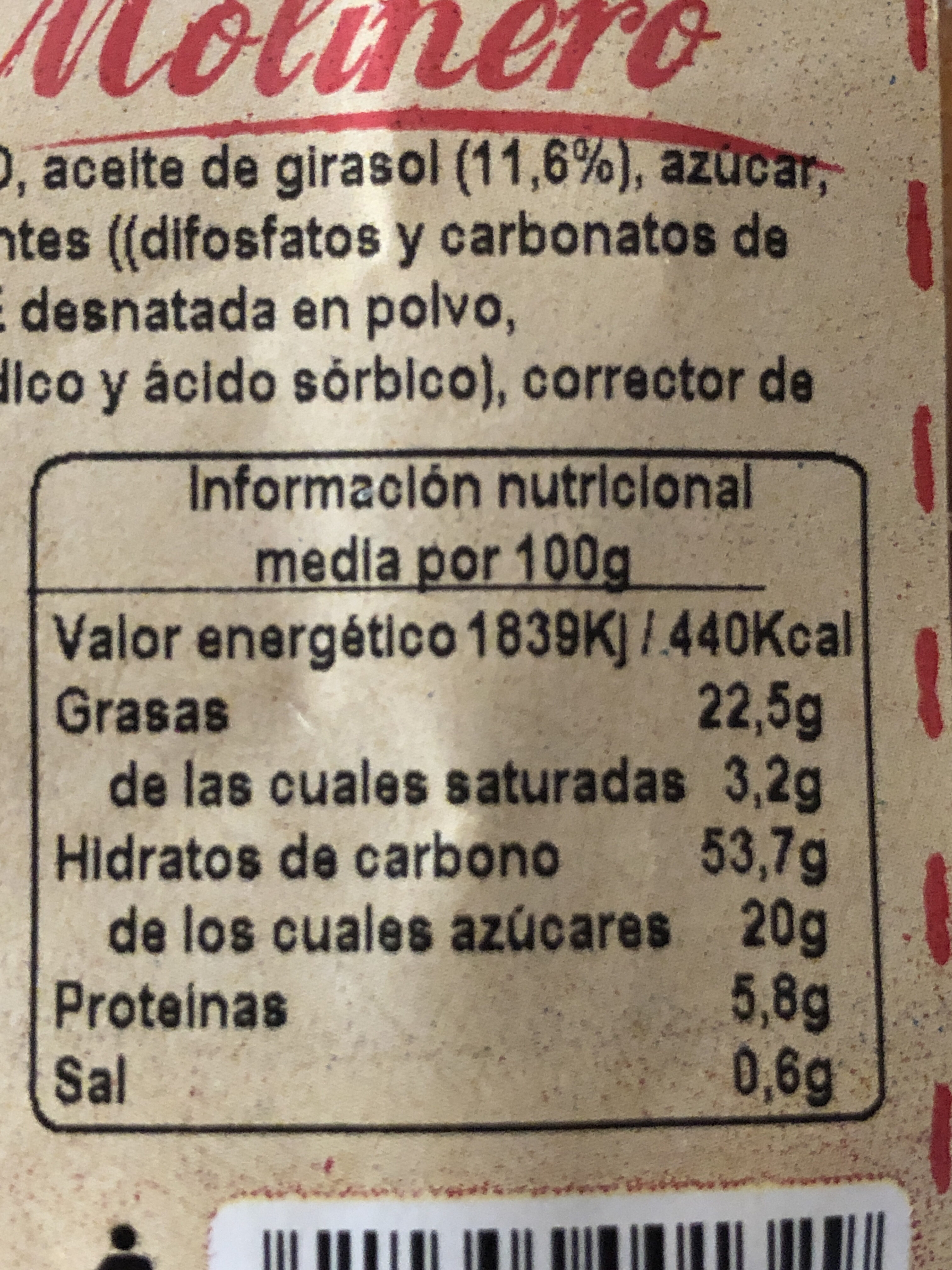Rosquillas - Molinero - 380 g
This product page is not complete. You can help to complete it by editing it and adding more data from the photos we have, or by taking more photos using the app for Android or iPhone/iPad. Thank you!
×
Barcode: 8412354001329 (EAN / EAN-13)
Quantity: 380 g
Brands: Molinero
Categories: Snacks, Sweet snacks, Biscuits and cakes, Pastries
Labels, certifications, awards:
Green Dot, With Sunflower oil
Link to the product page on the official site of the producer: http://pastasmolinero.es/
Stores: Ahorramás
Countries where sold: Spain
Matching with your preferences
Environment
Packaging
Transportation
Report a problem
Data sources
Product added on by openfoodfacts-contributors
Last edit of product page on by naruyoko.
Product page also edited by alexrios, kiliweb, roboto-app, yuka.U0x3U1M1b2xpNlFycXNGdjJpblkxdEJMN0p1RFpITHZDTlFlSVE9PQ, yuka.ZjZrSkc2RXVwZjhwbWZJc3pDaUs0SU42MTZDVEFubXFLUFZKSVE9PQ, yuka.sY2b0xO6T85zoF3NwEKvlm9bUoT3vhznKAflo2et_YihIaXxeNRxyLTePKs.
